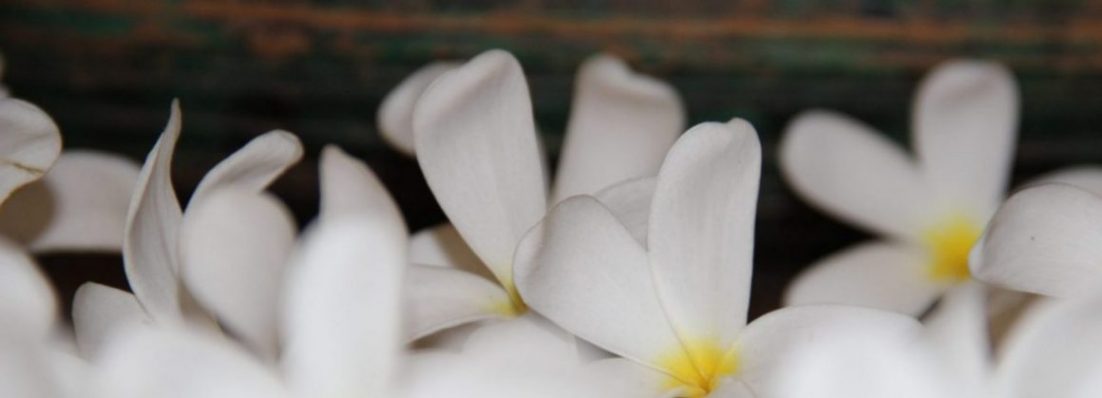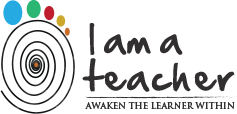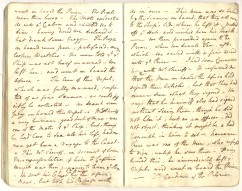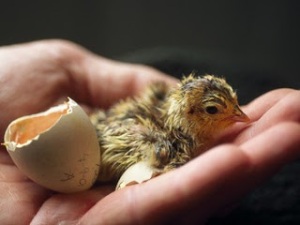Welcome to your own diary. Think of this section as a shared community diary for all of us. This space is meant for you to write and share your personal reflections, ideas and experiences from your journey of being a teacher. This section is specifically dedicated to your original writings such as – articles, poems, journal pages etc. So keep this space alive with your rich experiences and your creative writing.
Listen to the cry of the womb
Whose children are suffering
Need we those
Who can rise from this pain
Take the courage to face themselves
For who they are
Will shape the new future
A new India of our dreamsAttending to this pain
Awakened is the teacher in me
Forward I have to go
And I have to know
Who I am matters more
Than what I teachI will realize the dream
Believe in the light of each beam
Together they will shine
When removed is the darkness
From my own eyes
I will know
I have reached
When no longer I hesitate to say
I can, I believe,
I can change the world
I am a teacher
I am a teacher. Teaching is an art, which I discovered.
As a young girl, I never experimented with a paintbrush, danced without inhibition or sang without fear of judgment. I did not write for the joy of writing or read to understand. When my grade 1 teacher wrote in my report card, ‘can not sing in tune’, I stopped singing. Buried in my books and chasing grades, I never found the time to just be and discover the joy of doing.
As I grew up in a world of competition, unsure of what I wanted to do, I realized my education had not equipped me to make a choice. It had not helped me to explore my passions, and I felt lost in the world of material. I knew deep within that I was restless and I was not going to settle down without finding real purpose and meaning in my life.
Fortunately for me, I got an opportunity to get involved in a school, a school that was transitioning from a traditional mindset to progressive values, from old patterns to uncharted paths. It required me to question my assumptions, my beliefs and look at life afresh. It pushed me to confront myself, look within, discover my innermost values and for the first time find peace. I discovered a teacher in me.
It has been a transformational journey, and I feel ever since I have been growing as an individual. I discovered the role of engagement, flow and silence in my life. I connected with many ancient Indian scriptures, which reaffirmed my discoveries. I found meaning and flow in my work. It was a work of an artiste. I was completely absorbed and was finding joy in creation. We were creating another way of being, another kind of a classroom where boundaries between the teacher and learner blurred. We valued being ourselves and this helped our children to be themselves. As a result an authentic environment emerged in our classrooms.
This does not mean that I did not face challenges. On the other hand, there were huge hurdles that needed courage to surmount. I found courage, belief and resilience in myself, which had been latent for many years. This path left me craving for more. I wanted to get better at my art, where I was not left with self-doubt, no judgment, being attentive to the moment, bringing out love.
This led me to explore another environment, another school, which guided my spiritual journey. Mirambika is an alternate, free progress school, based on the ancient Indian principles of child development, rediscovered by Sri Aurobindo. It is a small community of teachers, parents and students, nurtured by love. I felt an instant connection with Sulochana didi, elementary school head in Mirambika and she has really been a source of inspiration for me over the years. She is an epitome of love. Just by the way she stands in the dining hall during the lunch hour, not supervising it, but ensuring with love and care, like a mother, that all her children were eating; I feel a deep sense of reverence towards her.
When I first entered the classroom, she told me, ‘observe the kids and do what your heart tells you.’ This was very liberating and at the same time very scary. It provided me an environment to truly create my classroom and learn from it. The whole quest was to help each child connect with and find his or her true ‘swabhava’(natural self) and swadhrma’(inner calling). Here, I really struggled, questioned, reflected on how I wanted to do it and how I could learn from my experiences.
While working with students on writing and poetry, I was encouraged as a teacher to write my own stories and poems. I was an inhibited writer, but to my surprise, I realized, I could write. I was beginning to overcome, what I considered my biggest weakness. I found inspiration in nature and I felt that I couldn’t write when the inspiration was missing. It seemed like something from inside indicated when I was ready to create. I couldn’t do this at my own will. I couldn’t just tell myself to do it, unless I felt connected or had a strong emotion associated. It gave me a peak into the ‘artistic process.’
Similarly teaching cannot happen without connecting with our children. It is a process of creation, creating an environment of love, care and trust; creating an environment where students learn to learn, are not scared of experimenting and making mistakes; creating a shared space where collaboration gives way to developing self and an individual identity; creating an understanding of ourselves and our world. It is a human process, which cannot be mechanized and should not be mechanized.
There were several questions that I wanted to explore further as a teacher. How do we help our children to aspire for the highest? How do we inspire our children to lead the lives they are meant to? The answers came to me when I connected with myself. I had to do this first as a teacher before I could expect it out of my children. I realized as a teacher, I had the responsibility of creating a new world of our dreams. I had to aspire first and lead the life that a teacher is meant to. Today, I can proudly say, I am a learner. I am a teacher.
– Smriti Jain
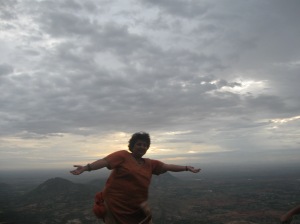
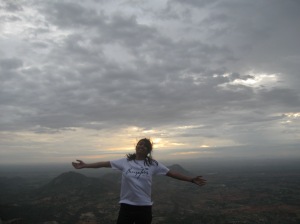
I listen…To the windTo the words said or unsaidTo the laughter and criesTo the child in meAnd the child outsideI have wingsI can flyFly to different worldsWorlds that we together createWith our hearts and with our mindsI dance with youI am with you, my childAnd learn with youI am joyousI am meI am a teacher
Let me live!
The present state of education in our country where the children are forced to hatch from their cosy shelters, denies them of their struggle to find out their own existence. The charm of learning things on one’s own, the exhilaration of discovering something new, the smile of innovation is mercilessly snatched away. The education system in hardly gives children a chance to learn on their own as most of it is force fed. American Writer and Educator once said “The art of teaching is the art of assisting discovery”. It made me wonder how many teachers truly believe in the above quoted line, forget following it to the core. What an intimidating thought, the future of our country lies in the hands of teachers who rarely love their professions and teach by pages and numbers rather than providing true erudition. Nevertheless, I feel a little reassured that at least there is a new start, a handful of schools who are willing to let the chick hatch own its own instead of pushing it out prematurely. It might take years for the ‘rote’ mind set to change but the first baby steps have been taken. Here’s hoping to better and vivid future of our education system!
‘ Be the change you want to see’
Behold a beautiful white egg,
Glistening in the morning light!
And within its cramped walls I lay,
Awaiting to see the world with my first sight!
With immense love my mother brooded,
And gave me my valuable life!
so that I hatch and grow,
And on my own overcome life’s strife!
Pray! Let me naturally hatch!
Do not any artificial means attach!
Break not my shell before time,
And thus commit an unpardonable crime!
Let me on my own hatch and peek,
On my own grow and my life seek!
I do not need human help,
Let nature take its own way!
Allow me to be born and live
And grow with passing of each day!
– Ankita Mukherji
The gift called ‘Me’
I look at everything with wonder & never get tired of asking questions…
I learn so many interesting things & can share volumes about these.
I walk along the garden hedge holding hands of my friends no matter how long or uneven our chain goes…
When I play in sand, everything else becomes oblivious; my happiness knows no bounds & my clothes bear traces of sand much more than my hands…
I share everything – when needed, when not needed & even when asked not to!
And I don’t understand why older people miss this joy… I love being a child. I love being myself.
And its such a gift that I can be myself all through my life because my teacher told me – I am unique and there’s nobody like me!
– Prerna Shivpuri
A Walk on Fire
Burning embers
Glowing coal
A walk on fire
Makes me wholeBright light
Tests my might
Fear of burns
Path of no returnResolve to overcome fear and pain
Brings out my courage
I fight my fear
Apprehension disappears
An aspiration remainsTaking the first step
Gives me strength
Seeing myself reach the mid bend
I celebrate my victory over my painHold on
Journey ahead is not easy
Fire burns intensely
Going through this walk
Can only cleanse me
Help me realize my power
That resides within me
The Will to Grow
This is a reflection on the habits of heart and mind to be developed by teachers. Different habits of heart and mind are interdependent and developing one leads to developing some others. As Sri Aurobindo (1956) says, ‘Nothing can be taught’, everything is within us, and it just needs to surface. Intuitively we know what is right and what needs to be further developed. It is extremely important to develop this faculty of discernment, which helps us to make the choice to grow. We can do this by providing the space and time for reflection.
Two of the most important habits to develop are reflection leading to self-awareness and authenticity, which I view as harmony of thought, speech and action. Reflection nurtures awareness of one’s strengths, passions, and interests. It is essential that all of us are in touch with our selves and identify our true purpose and calling.
I agree with Eric Booth (2009), when he says, “80% of what we teach is who we are”. If educators are authentic and self reflective, it will build an introspective and genuine culture in the classroom without pretensions, judgment and hypocrisy. Very young children are integrated and totally authentic. What they think, they say, and what they say, they do. They become divided and learn to maneuver as they get in touch with the adult world. It is extremely important to help children retain the natural harmony of their inner and outer world. This is possible only in an environment, which provides the space and psychological safety for each person to be himself or herself. Only an integrated and authentic teacher can create this safe space, free of comparisons, where it is easy to just engage without any fear of judgment or worries of putting on different masks.
This leads to the development of another habit of mind and heart, which is mindfulness; being present to the moment. When one does not have to fear judgment and is comfortable with oneself, then it is easier to engage with the present. It is essential that the tasks that children engage with are real, purposeful, open ended, relevant and facilitate exploration and thinking. Tasks should enable one to seek different ways of approaching them, support an attitude of being comfortable with ambiguity and address real problems. Another important thing to develop mindfulness is to let children explore at their own pace. They should not feel rushed and they should have enough time to be with the task and themselves, so as to bring out what lies within. When appropriate tasks are chosen and enough time is given, then we help ourselves and children to engage mindfully.
What emerges from being mindful is the habit of listening with all our senses. (Rinaldi, 2006) When we truly listen, we are present to the other and show our love, care and respect for the other being. It is only by listening we tend to the other and create a community of love and trust. This habit is extremely important as this coupled with authenticity creates an environment of open and real dialogues. It is through this collaboration, and creation of a real authentic social space that we learn.
With attentiveness and mindfulness, we also develop a habit of excellence. When we attend to what is, to life, to people, to situations, and to actions, then we lose all our past conditioning. In that state of mind, we are completely free and we connect with our consciousness resulting in complete attention to every idea and action we engage in. This brings out our best in all that we are and all that we do.
Each small success reaffirms a belief in ourselves and others. It is essential that everyone in the education sector develops this belief in human capacity. Only when we believe, we give an opportunity to ourselves and others to blossom and grow. The belief and hope helps us to nurture and care. When we doubt, then we exterminate all the possibilities. (Elbow, 1973)
It is what we create inside, manifests outside. It is extremely important that we nurture our hopes and aspirations. When we aspire, it helps us to move forward, overcome challenges and persevere. I am intrigued by this cyclical nature of habits of mind and heart. It is really our will that helps us to either go up or down in this spiral of habits. It is ultimately what we choose, we be. As educators we have the responsibility that our children make the conscious choice that takes them upward on this spiral.
– Smriti Jain
References:
Booth, E. (2009). What is a teaching artist? & Teaching artists in the arts learning ecosystem. In The music teaching artist’s bible (pp. 3-25). New York, NY: Oxford University Press. Elbow, P. (1973). The doubting game and the believing game: An analysis of the intellectual enterprise. In Writing without teachers (pp. 147-157, 162-166, 169-181, 187-191). New York, NY: Oxford University Press. Rinaldi, C. (2006). Teachers as researchers. In In dialogue with Reggio Emilia: Listening, researching and learning (pp. 137-142). New York: Routledge. Sri Aurobindo and Mother. (1956). On Education. Sri Aurobindo Ashram, Pondicherry.A life of Excellence
Spider tirelessly weaves a web
Each movement so perfect
Never takes a wrong step
He knows if he defects from his path chosen
Fall he will and start afresh
All the effort would go in vain
Would he be able to create again?
With such enthusiasm and all his heart?
Yes, because he doesn’t know of any other way to be
For him life is to be lived fully
Half hearted work and action mediocre exist not
Every move His excellence sought
So why did He create you and me
Where mediocrity is the way to be
And forget we to live fully
We live lives distracted
To keep our being together is hard
Are we really more evolved?
Or is it something we like to be called?
-Smriti Jain
